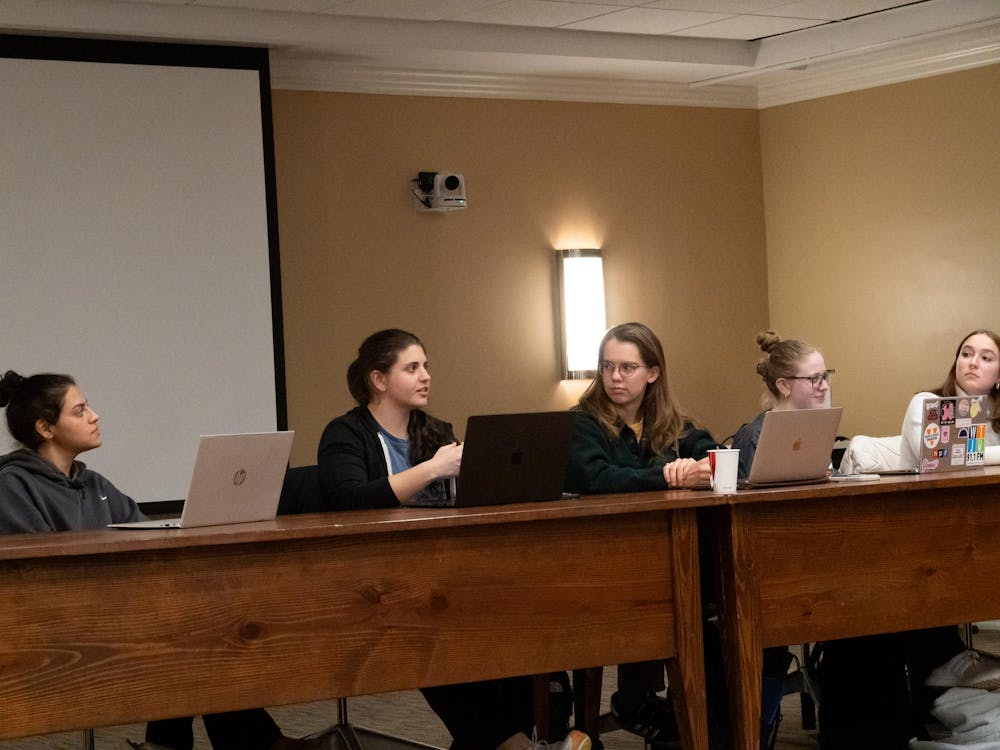Forty percent of May 2012 graduates from the College of Arts & Sciences had acquired full-time employment or were self-employed after Final Exercises this past May, according to a recently unveiled report that profiled graduates’ post-college paths.
The results came from a survey conducted by University Career Services in conjunction with the College and Center for Survey Research, and provide a “snapshot of the diverse ways in which graduates of the College launched their futures after earning their baccalaureate degrees,” according to the report.
Reports for other schools at the University showed even higher rates of employment, with undergraduate 2012 graduates in the Engineering School and the Commerce School employed at rates of 55.1 percent and 86 percent respectively.
Sarah Isham, director of Career Services for the College of Arts and Sciences, said the report’s findings will be particularly valuable to current and prospective students, as well as faculty and peer institutions.
In addition to the 40 percent of respondents who had acquired full-time employment or were self-employed after graduation, an additional 6 percent had accepted part-time employment. About 26 percent of respondents reported acceptance into graduate or professional schools, and 12 percent of respondents indicated other plans – including traveling, service work or fellowship. The remaining percentages said they were seeking employment or admission to graduate or professional schools.
Education, consulting services, legal services, scientific research and healthcare services topped the list of occupational fields among respondents. Most respondents remained in the United States after graduation, with only 7 percent reporting international employment.
Respondents’ average starting salary was $41,058, with a median of $38,000. The report contained an additional breakdown of salary distributions, with computer science and consulting services industries reporting the highest post-graduation salaries among respondents.
The pilot study began in March 2012, when 2,428 undergraduate students from the College were identified as eligible for graduation in May 2012. Researchers used web-based surveys to reach out to students to encourage them to participate in the survey in late April, in addition to periodic follow-up emails.
“We survey students in the spring when they are here, and based upon those classes that are going to be included in the report, we follow up with respondents,” Isham said. “The survey is voluntary on the part of each fourth year in the College.”
After sending follow-up emails to non-respondents and students who were still seeking employment in the winter following graduation, the Center for Survey Research closed the 2012 survey and compiled the data.
About 47 percent, or 1,142 students, of the 2,428 May 2012 graduates responded to the survey after the spring and fall response requests. The University Career Services office has already begun collecting data on the 2013 graduating class, Isham said. She said the group hopes to release the data in early 2014.
“It’s definitely something that we were thankful to do and we hope that we have the resources to continue it,” she said.
Both Engineering and Commerce 2012 graduates reported average starting salaries higher than $60,000 in the reports.
In the Engineering School, the average starting salary of those surveyed was $67,701 and a median salary of $65,000. They were most likely to take jobs in consulting, computer hardware/software design or development and engineering service.
“Generally speaking, our students, when they graduate, have lots of options,” Engineering School Associate Dean Edward Berger said. “Some of them will go to grad school, some of them will go to medical school, some of them will go to Teach for America — that’s one of the things that we are really pleased about with our undergraduate program is that when students graduate they have lots of opportunities and there are no doors closed to them.”
Commerce School graduates have an average base salary of $61,022 and a median base salary of $60,000, according to the survey. Jobs for Commerce graduates were most often in the fields of investment banking, consulting – not with accounting firms – and diversified financial services.
Commerce School Dean Carl Zeithaml said that the high employment rate is due to the high level of interest recruiters have in Commerce students.
“We attract new recruiters each year and we have very loyal and very engaged recruiters.” Zeithaml said. “I think one of the things that they like about [the students] is that they are students who have taken two years in the college and many of them have a minor in the college or a major. You add to that a world-class business education and that makes the students extremely attractive to the recruiters.”




